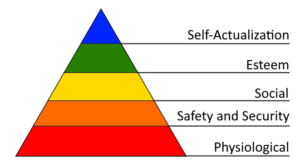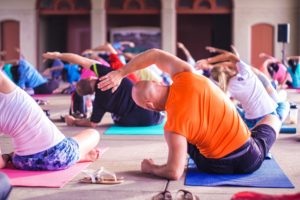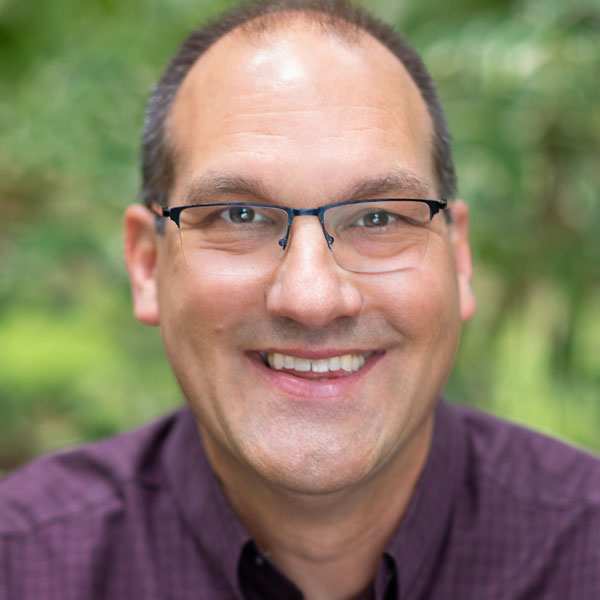Practicing good self-care is an important priority for me as a person and a practitioner. I am often working on self-care in my own life. I will say things to myself like, “Eat slowly, enjoy dinner time conversation, there is no need to rush.” Or “Take a deep breath, pray, don’t worry.” I also remind my clients of the importance of self-care as an important strategy to combat stress, anxiety, depression, and other mental health challenges.
 In Part 1 of Good Self-Care, I want to examine the importance of taking care of the whole self – body, mind/heart/soul (the inner life), social life (relationships), sexual life, and spiritual life (relationship with God). Whole Self-Care has its roots both in psychology and in the Bible. In part 2, I will talk in more detail about hurry sickness and ancient Biblical practices to remedy modern stress. In part 3, I will focus on Jesus’ invitation to enjoy Sabbath as a prescription for peace and wholeness.
In Part 1 of Good Self-Care, I want to examine the importance of taking care of the whole self – body, mind/heart/soul (the inner life), social life (relationships), sexual life, and spiritual life (relationship with God). Whole Self-Care has its roots both in psychology and in the Bible. In part 2, I will talk in more detail about hurry sickness and ancient Biblical practices to remedy modern stress. In part 3, I will focus on Jesus’ invitation to enjoy Sabbath as a prescription for peace and wholeness.
Do you remember learning about Maslow’s hierarchy of needs in your Psych 101 class? Maslow’s motivational theory is made up of a five-tier model of human needs, often depicted as hierarchical levels within a pyramid. From the bottom of the hierarchy upwards, the needs are physiological (food and clothing), safety (job security), love and belonging needs (friendship), esteem, and self-actualization. He proposes that lower needs in the hierarchy must be satisfied before individuals can attend to needs higher up.
What I appreciate about Maslow’s theory is the emphasis on the whole person and the interconnectedness of needs. In my Marriage and Family Therapy Grad program at Seattle Pacific University, we referred to the whole person as having Bio-Psycho-Social-Sexual and Spiritual domains.
When it comes to good self-care, we would be wise to pay attention to our biological needs for sleep, good nutrition, exercise, and safety. We should also seek to meet our psychological needs for inner wholeness and healing. We should focus on our social needs to be connected to others in meaningful reciprocal relationships.
Part of our social needs relates to our sexual and non-sexual needs for closeness and intimacy. We should not neglect our self-actualization needs for creative self-potential. The Bible replaces self-potential with spiritual needs for a loving relationship with God as we join God in the work he is doing in the world. What we learn from reading the Bible is God has a plan to redeem the whole person. He cares about meeting all our needs and working in us so that we can meet the needs of others.
When Jesus was asked, “Teacher, which is the greatest commandment in the Law?” He replied: “‘Love the Lord your God with all your heart and with all your soul and with all your mind.’ This is the first and greatest commandment. And the second is like it: ‘Love your neighbor as yourself.’ All the Law and the Prophets hang on these two commandments.” Matthew 22:36-40
We are told to love God with our whole being represented in these verses with heart, soul, and mind. In other words, we are to love God with our inner person, the real you on the inside. Inseparably linked is the second command, to love others as we love our self. We can’t love God without loving self and loving others. The second commandment reminds us of the balance of self-care and caring for others. We can’t do one without the other.
Self-Care for Our Body
Recently a client presented with symptoms of depression. Working with a holistic doctor, we discovered he had low levels of serotonin probably from years of work-related stress and taking on too much responsibility.
Serotonin supplements, in addition to quiet time with God and good self-care practices, brought renewed hope and healing. Sometimes mental health issues have a biological basis that needs our immediate attention. Our body is communicating to our mind, saying, “I am showing you are not healthy, you need to pay attention to me and get help.”
Good Nutrition
Another client discovered from a blood panel, that she was allergic to wheat, nuts, and dairy. Avoiding allergens and working on a healthy vegetable-heavy diet, brought relief from a “foggy brain”, an upset stomach, bloating, and inflammation. Her improved physiological state helped her feel “more alive” less anxious and less depressed.
Exercise
 Finding exercise you enjoy contributes to good mental health. I prefer trail running on the wooded trails near my house. I am revitalized running through the woods, breathing in the fresh air as I am surrounded by nature. The soft earth is easier on my body than running on pavement.
Finding exercise you enjoy contributes to good mental health. I prefer trail running on the wooded trails near my house. I am revitalized running through the woods, breathing in the fresh air as I am surrounded by nature. The soft earth is easier on my body than running on pavement.
Sometimes I listen to an audiobook or a podcast but most often I enjoy quiet and spend time thinking and praying. Some of my best ideas for my own life and for clients come in “aha moments” on the trail. Find something you enjoy, burn some calories, and sweat out toxins. The quality of your life and sleep will improve with consistent exercise.
Quality Sleep
Before the invention of the electric light and late evenings, Americans averaged eleven hours of sleep per night. Ninety percent of America was agrarian, and people went to bed early and rose early with the sun. Today American’s work more hours and get less sleep than ever before. In fact, Americans average an all-time low of seven hours of sleep per night. Most Americans sleep next to their phone and spend their last waking hours on their phone before going to bed. (The Ruthless Elimination of Hurry, John Mark Comer).
After working nine hours a day six days a week, many Chinese citizens go home to enjoy bàofùxìng áoyè’ – or “revenge bedtime procrastination.” They go home feeling depressed and “deprived of … personal life” and choose “me time” plugged into electronic devices until the wee hours of the morning rather than getting hours of quality sleep.
Quality sleep translates into quality life. Getting off electronics early in the evening, sleeping in a quiet, dark, cool environment, going to sleep, and rising at the same time each day, and praying before going to bed, are all good habits to maximize quality sleep.
Trauma Recovery
In the landmark book, The Body Keeps the Score by Bessel Van Der Kolk, M.D., we learn the body remembers trauma and stores traumatic events in the cells. Prayer and counseling for healing from past traumas, victimization, exploitation, and PTSD, can powerfully bring healing to the body, mind, and soul.
In the book Soul Care, Rob Reimer describes relief from trauma by developing a healthy self-identity, confessing sin and selfishness, forgiving offenders, healing wounds, overcoming fears, and receiving prayer and support for deliverance.
Closeness and Intimacy
The Bible tells us the care of our bodies is a spiritual exercise. In 1 Corinthians 6, we are told how we express ourselves sexually matters to God. We were designed to have a satisfying, exclusive relationship with a spouse. The scripture goes on to say, “Do you not know that your bodies are temples of the Holy Spirit, who is in you, whom you have received from God? You are not your own; you were bought at a price. Therefore, honor God with your bodies.” 1 Corinthians 6:19-20. We can interpret and apply this Scriptural principle to mean we should treat our bodies as if they were holy temples, not just ordinary vessels.
We are bodily creatures, and we need sexual and non-sexual closeness and intimacy. Jesus was God in a body, Immanuel – God with us. It was important to God that he become a person to relate to persons. Likewise, we need bodily contact, hugs, kisses, even a punch in the arm, or a back rub.
Children who grow up without enough physical touch suffer in childhood and adulthood. One reason we enjoy our pets is the health benefit of touch from petting a dog or cat. “Have you hugged your kid or your cat today?” In the age of COVID, we have all become aware of the need for physical touch. Human beings flourish when they experience closeness and intimacy.
Care for Our Soul
Years ago, I was teaching a class on the book Renovation of the Heart by Dallas Willard. I was actually teaching the class with Dallas’s daughter and son-in-law. A primary premise of the book is to surrender to God and be transformed by him. To demonstrate the act of surrender, I was waving a white flag and marching around the room. To my great surprise, Dallas chose that exact moment to surprise us with a visit. He graciously joined us in teaching the class.
 Dallas wrote “The greatest need we have – of collected humanity – is the renovation of the heart. Heart/soul is being formed by a world away from God. Now it must be transformed.” Renovation of the Heart, Dallas Willard.
Dallas wrote “The greatest need we have – of collected humanity – is the renovation of the heart. Heart/soul is being formed by a world away from God. Now it must be transformed.” Renovation of the Heart, Dallas Willard.
Just as we form our bodies through repeated exercise or lack of exercise, we also form our soul (mind, will, and emotions) through repeated thoughts and behaviors. We know enough about brain science to realize that repeated behaviors, whatever they may be, binging TV shows, shopping, porn addiction, video gaming, form channels in the synapsis in our brains, literally forming our brains.
Our souls are also formed by what we take into our brains through repeated exposure to news of the world, social media, and the predominant belief system and lifestyle of the majority.
Watch over your heart with all diligence, for from it flow the springs of life. – Proverbs 4:23
God wants to form our souls and invites us to engage with him daily. The Bible is our alternative news source filled with exhortations and encouragement on how to live a life plugged into God.
Do not conform to the pattern of this world, but be transformed by the renewing of your mind. Then you will be able to test and approve what God’s will is—his good, pleasing and perfect will. – Romans 12:2
When we let God form our souls through a relationship with him – in conversational prayer, interaction with the Bible, enjoyment of worship, and other spiritual disciplines, we are allowing our formed soul to be reformed and transformed by God. We come to know him and be like him. I will talk in more detail about spiritual disciplines in Part 2 and Part 3 of this series on practicing good self-care.
The problem is that our souls can be damaged. Sheila Walsh is a Christian singer, Bible teacher, and TV and radio personality. She has a public ministry and has helped many people find hope and healing. In her book It’s Okay Not to Be Okay, she candidly talks about the devastation of her divorce, depression, and hospitalization.
She reminds us how easy it is to hide our true feelings and tell everyone we are okay when inside we are broken and desperately in need of help. It’s difficult to share our authentic selves and find someone to talk to who is safe enough and strong enough to help us. When it comes to mental health issues (problems of the soul), many people hide or deny their feelings. What is needed is gut-level honest conversation with people we can trust.
Christian counseling can be one of those safe places where a person can honestly share “I am not okay.” I respect my clients who share their real selves and inner needs with vulnerability. I cry out to God, with and for my clients, believing His promise, “The LORD is near the broken-hearted and saves the crushed in spirit.” Psalm 34:18
Self-Care for Our Spirit
We are bio-psycho-social-sexual-spiritual creatures, and it is not easy to neatly separate these domains without overlap from one to another. What happens with our body and our soul affects our spiritual life. The spiritual decisions we make also transform our minds, wills, and emotions.
 Self-care for our spirit begins not with self-worth, but with God’s grace. We all fall short in our attempt to find wholeness apart from God. How often do we hear those crippling inner voices that say things like “you are not good enough” “if people knew the real you, they wouldn’t like you” or “you are a failure”? God knew we needed help to be good enough, that is why he poured out his love and grace to us through his son Jesus.
Self-care for our spirit begins not with self-worth, but with God’s grace. We all fall short in our attempt to find wholeness apart from God. How often do we hear those crippling inner voices that say things like “you are not good enough” “if people knew the real you, they wouldn’t like you” or “you are a failure”? God knew we needed help to be good enough, that is why he poured out his love and grace to us through his son Jesus.
British theologian, pastor, and author John Stott was fond of saying “Grace is love that cares and stoops and rescues”. Dallas Willard adds “Grace is God acting in your life to accomplish what you cannot do on your own.” Sheila Walsh in her book, It’s Okay Not to Be Okay, said it this way, “Grace is the opposite of karma. We get what we don’t deserve: the love, mercy, forgiveness of God.”
Grace is the love God gives us when we don’t deserve it. It comes to all persons through Jesus. Jesus showed the full extent of God’s love when he died on the cross for our sin and was raised from the dead, defeating death. When we choose to believe in Jesus and invite him to lead our lives, we can experience true freedom.
Jesus declared his intention to bring us freedom, when he said “The Spirit of the LORD is upon me, for he has anointed me to bring Good News to the poor, He has sent me to proclaim that captives will be released, that the blind will see, that the oppressed will be set free, and that the time of the LORD’s favor has come.” Luke 4:18-19 He brought a whole-person redemption that lifts the poor, releases prisoners, gives sight to the blind, and sets free the oppressed.
He accomplished this by taking our sin and shame to the cross with him. In his resurrection from the dead, he conquered sin and defeated death. Jesus redeemed us – he bought us back. He paid the price for us with his own life. He freed us from enslavement to sin. We were prisoners but now we are free. This new freedom transforms every area of our life.
Do you ever feel like you are a prisoner? Many of my clients feel like prisoners:
- Prisoners of overwhelming feelings of fear, anger, bitterness, and resentment
- Prisoners of addictions that feel like monsters within
- Prisoners of past experiences of abandonment and betrayal
- Prisoners of trauma – physical, emotional, mental, or sexual abuse
- Prisoners of labels we wear around our necks, like “You are no good”, “You will never amount to anything”, “No one wants you” or “You are not worth loving”
Sometimes we think God has forgotten us because we are enduring pain and suffering. In It’s Okay Not to Be Okay Sheila Walsh explains, “Redeemed Pain. That’s a powerful truth. We all experience pain, but we bring it to Jesus, He redeems it. The enemy of our soul would love to keep us quiet and shame-filled, but Jesus uses pain given to Him to free us and see others set free. You are not what happened to you. You are a child of God.”
My prayer is that this will be a year of good health for you as you find biological, psychological, social, sexual, and spiritual wholeness. I have shared several good books and described many good principles in this article I hope will be useful to you on your journey of good self-care. If you would like a mentor on the self-care journey, I invite you to contact me or one of my colleagues at Seattle Christian Counseling.
Sheila Walsh comforts us when she says “God never rushes us through our pain, he sits with us as long as it takes.” This is a good description of the process of Christian counseling. A trusted advisor sitting with you in your pain looking to God for hope and healing. As we practice good self-care, letting God’s love bring inner healing, we can care for others. Healthy people can love God, and love others as they love themselves.
References:https://www.bbc.com/worklife/article/20201123-the-psychology-behind-revenge-bedtime-procrastination
Photos:
“Exercise”, Courtesy of Anupam Mahapatra, Unsplash.com, CC0 License; “Put on a Happy Face”, Courtesy of Sydney Sims, Unsplash.com, CC0 License; “Sunshine Bath”, Courtesy of Zac Durant, Unsplash.com; CC0 License;






